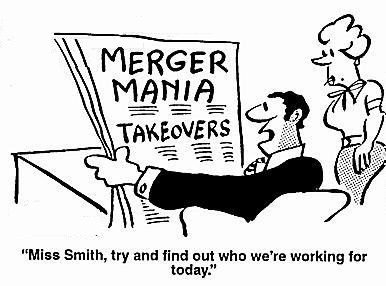27 July 2015
The Problem with Big Mining Companies




The following article was on miningnews.net, but I thought it
was one of the better and most accurate articles I'd seen in some
time! Thought to share it…………
The Problem with Big Mining Companies
July 2015
There is an obvious difference between big and small mining
companies, size, but recent events have caused Dryblower to wonder
whether there is another difference and that's whether big mining
companies are miners at all, or merely factory managers.
A report by the investment bank, Citi, started this line of
inquiry because of the way it exposed the damage caused by big
mining companies over-paying for assets during the boom years, and
the subsequent 90% write-off in asset values.
As that remarkable piece of research was being digested Sandfire
Resources announced a fresh copper discovery, Gold Road Resources
expanded its Gruyere project thanks to a fierce drilling campaign,
and Sirius charged ahead with the development of the Nova nickel
project.
Those seemingly different developments lie at the heart of the
question of what it takes to be classified as a true mining
company, and what it means to be a factory manager - and a not very
good one at that.
One word is probably all that's needed to separate
genuine miners from managers of assets: exploration.
Small companies do it as a way of creating value. Big companies
avoid exploration because they don't do it well, and management
tends to see money spent on exploration as money wasted because the
results can be hard to measure and success can be elusive.
But, what Citi exposed with its analysis of merger and
acquisition activity since 2007 is that big mining companies don't
do M&A well either. The combination of poor exploration results
and poor M&A remindedBlowerof a particularly harsh criticism of
a well-known cricket player who was asked: "If you can't bowl,
can't bat, and can't catch, what are you doing playing cricket?"
The same can be asked of big mining companies: "if you can't
succeed at exploration, and can't succeed at M&A, what are you
doing in mining?'
Well, the answer seems to be that the big miners are quite good
at running a production process with efficiencies squeezed out by
pushing more rock through a processing plant, or loading more ore
on a train, or filling a ship faster this week than last week. In
other words, the people running the big mining companies would
actually be quite good at running a car assembly plant, or a baked
bean factory where getting more cans off the production line is the
measure of success.
Those comments might seem to be unfair criticism of some highly
qualified and dedicated earth-science professionals butBlowerhas no
intention of apologising because there really does appear to be a
stark difference between the way big and small companies go about
the business of mining.
Citi's report, which did not touch on the question of
exploration success (perhaps because big companies don't discover
much) was a devastating critique of the ability of big miners to
buy assets. But, before even getting to the waste of shareholder's
funds from over-paying for assets there is the fundamental question
of why do big miners have to buy assets at all when successful
exploration would deliver a better result for investors.
Whatever the reason for management of big companies preferring
the M&A route for growth the fact is the people in charge can't
resist a big deal which will expand the size of the company they're
running even if it wastes money and doesn't deliver an increase in
financial performance.
According to Citi's analysis the world's biggest mining
companies have written down the value of all M&A deals done
since 2007 by an astonishing $US85 billion. More asset value
write-downs are expected as the slump in iron ore and coal prices
eats into the carrying value of projects exposed to those
commodities.
The real problem for the big miners is that they are locked into
a process of running their existing factories (sorry, mines) as
hard as possible in order to generate dividends for shareholders
who are demanding a yield on their investment today rather than
capital appreciation of their shares from future growth which can
only come from exploration success, or M&A activity.
What a mess.
Not only are the big miners no good at exploration, or at
discovering orebodies of sufficient size to satisfy their
requirements, but it has now been exposed by Citi that they're
lousy at M&A as well.
What happens next will be interesting to watch because the big
miners must keep growing as all orebodies eventually deplete, which
means discovery becomes more important as time ticks by, or M&A
becomes a consideration.
For investors with a taste for mining, the first message from
Citi's research work is simple. In a takeover situation sell the
company making the bid because the chances are no value will be
created for the buyer and there's a risk that a huge amount of
capital will be wasted.
The second message is that if you want mining (rather than
factory management) as part of your portfolio look further down the
pecking order to small and mid-tier companies where mining is
better understood and value is being created, not destroyed.